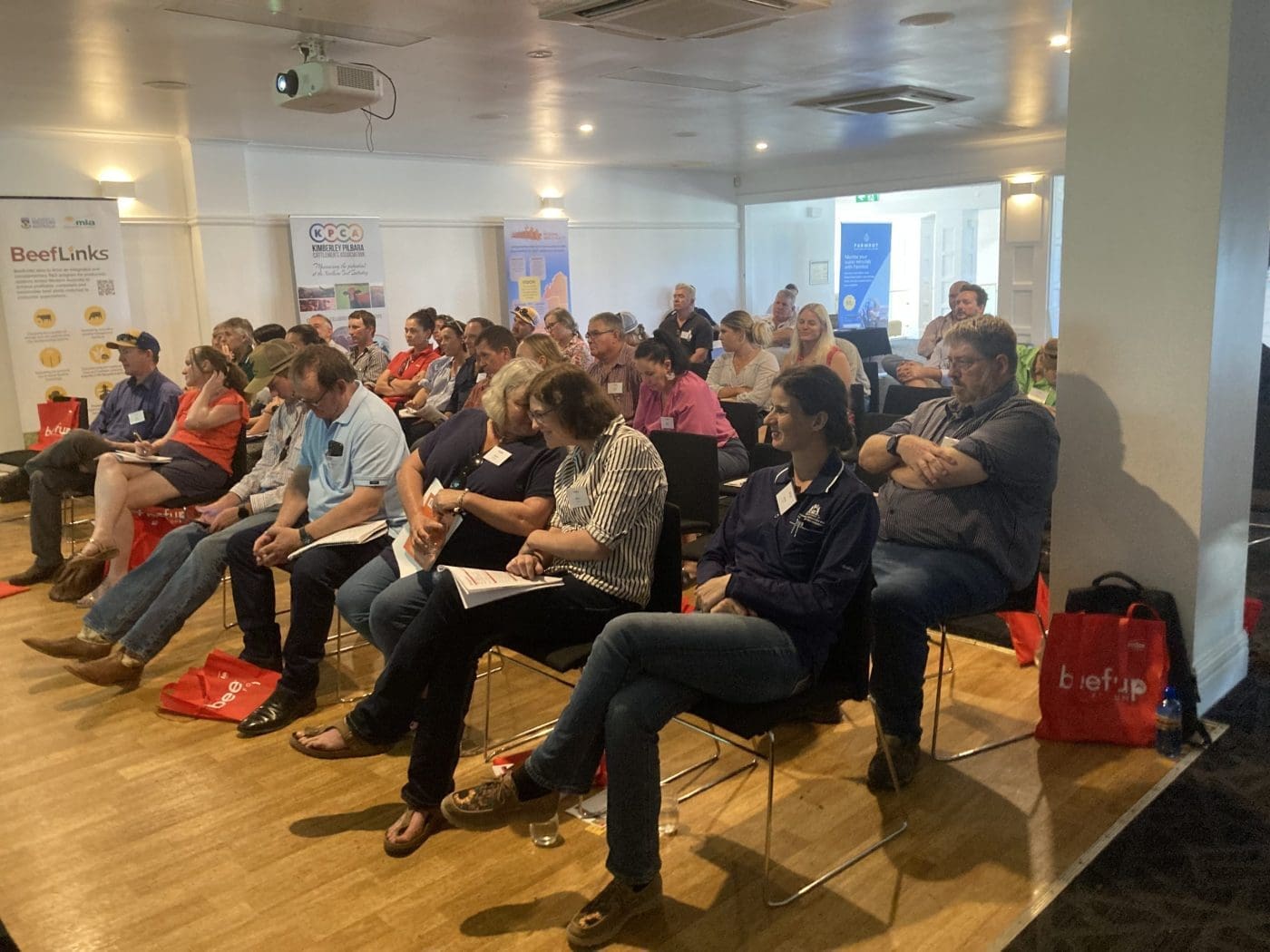
More than 50 people attended MLA’s BeefUp Forum in Broome, where they received an update on DPIRD’s Northern Beef projects.
RESEARCH to get more from native pastures and boost northern beef production was profiled at Meat and Livestock Australia’s recent BeefUp forums at Broome and Kununurra.
The Department of Primary Industries and Regional Development’s (DPIRD) work on over-sowing with stylo-based pastures and rejuvenating native grasses is expected to help boost northern cattle production, profitability and drought resilience.
DPIRD research scientist Geoff Moore told the forum integrating stylo legumes into the landscape can extend the length of green feed, effectively shortening the length of the dry season so cattle gain weight – especially weaners.
“We are taking a proven technology from Queensland and the Northern Territory on over-sowing stylos into native pastures and adapting it for the northern rangelands,” he said.
“Interstate research has shown the animal production benefits are well known and that the economics are highly favourable.
“There is an opportunity to develop a more resilient feed base in northern Western Australia by oversowing Stylosanthes species, like Verano and Seca, into native grasses.”
DPIRD established stylo pasture trials on two pastoral stations in the north and west Kimberley during the recent wet season to evaluate the production potential and phosphorus requirements under WA conditions.
Pastoralists interested in hosting small and large scale stylo demonstration sites are encouraged to contact the department.
This project is supported by the Northern Hub, through funding from the Australian Government’s Future Drought Fund.
Another DPIRD research project with the Department of Biodiversity, Conservation and Attractions is examining the potential to rejuvenate and reintroduce a range of desirable native grasses to enhance stock feed availability.
Principal research scientist Clinton Revell said one to two hectare fenced enclosures had been installed on two west Kimberley stations to assess species diversity and the impact of grazing.
The project will examine the performance of bundle bundle, Queensland bluegrass, Barley Mitchell grass, ribbon grass, black speargrass, native millet, Red Flinders grass, plume and annual sorghum and white grass in the northern rangelands.
“The research will evaluate species that lend themselves to commercial seed production and explore technology for seed harvest,” Dr Revell said.
“Small scale seed production trials were recently planted with a selection of species at The University of Western Australia’s Shenton Park research facility.
“The research will help us better understand native grass species in the landscape and explore strategies to manipulate species composition and options to reintroduce key species to enhance feed availability.”
Forum attendees also received an update on DPIRD’s Northern Beef Development program and its pain relief to enhance animal husbandry, phosphorus supplementation and animal genetics projects.
Source: Department of Primary Industries and Regional Development



HAVE YOUR SAY